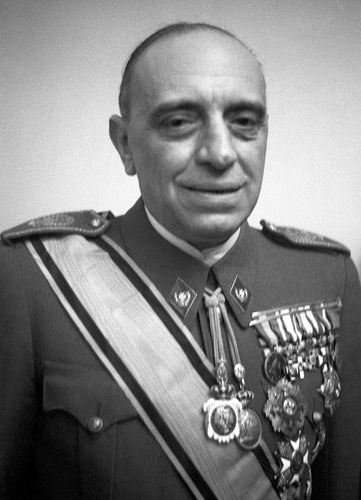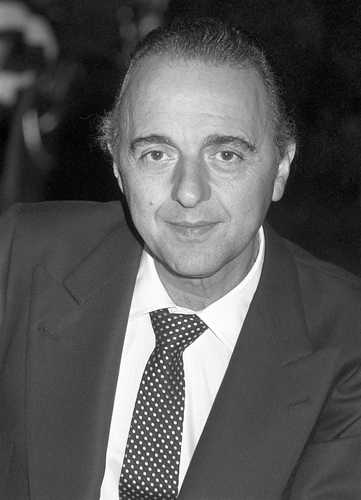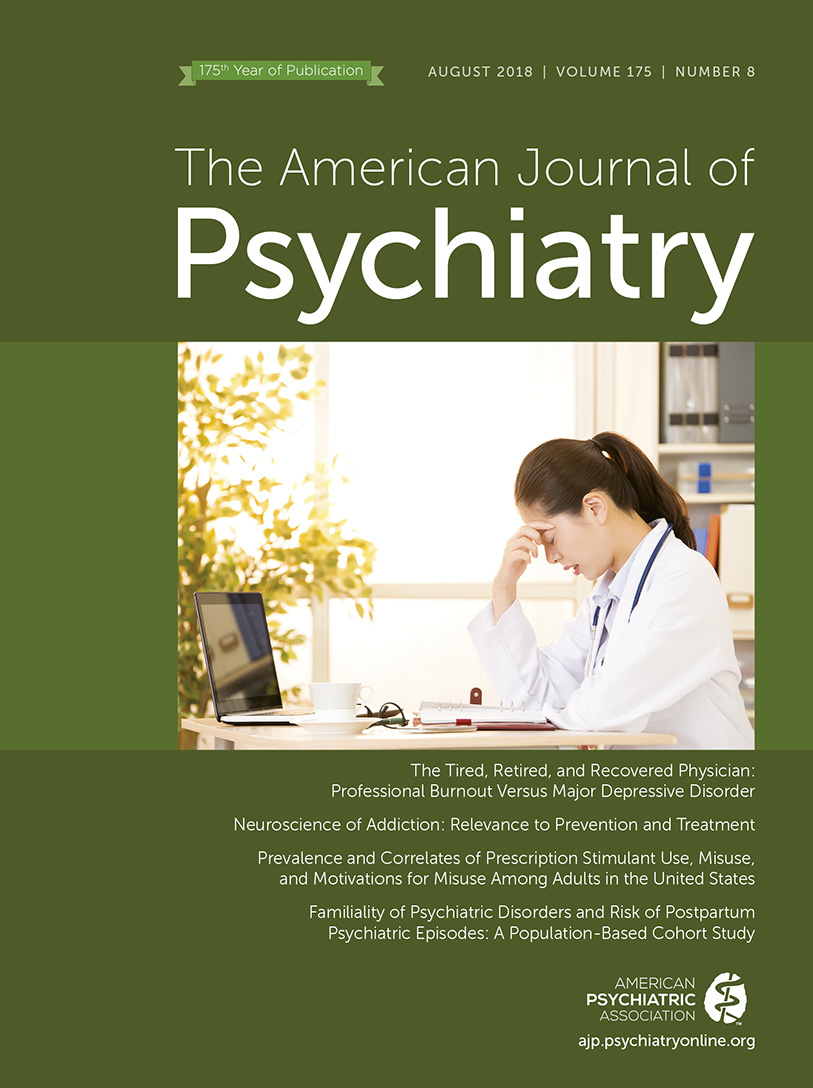Antonio Vallejo-Nágera (1889–1960) and Juan Antonio Vallejo-Nágera Botas (1926–1990)

Antonio Vallejo-Nágera (Source: Agencia EFE)

Juan Antonio Vallejo-Nágera Botas (Source: Agencia EFE)
Antonio Vallejo-Nágera, a Spanish psychiatrist, played a pivotal role toward the end of Spain’s civil war, as General Francisco Franco, the country’s caudillo (leader), began to consolidate his regime. During the Spanish Civil War (1936–1939)—a conflict between the Republicans, who were loyal to Spain’s first democratic republic, and the Nationalists, a rebel group led by Franco—Spanish physicians and mental health professionals aligned themselves on either side of the ideological conflict.
Vallejo-Nágera, an academic psychiatrist, had studied medicine at the University of Valladolid in northern Spain and spent time in Germany, where he met leading psychiatrists of that period, such as Gruhle, Schwalb, Kretschmer, and others (1).
On his return to Spain, Vallejo-Nágera took teaching positions in the military academy and practiced at a public mental hospital in Ciempozuelos, near Madrid. During these early years, Vallejo-Nágera published various texts on psychopathology, some of them emphasizing racial elements and eugenic doctrines, his writings clearly influenced by Kretschmer’s biotypologies (1–3)
In 1938, Franco instituted the Gabinete de Investigaciones Psicológicas de Inspección de Campos de Concentración de Prisioneros de Guerra (“Cabinet for Psychiatric Inspection of Concentration Camps of Prisoners of War”) and appointed Vallejo-Nágera to lead it.
As part of this official assignment, Vallejo-Nágera initiated a research project entitled “Biopsiquismo del Fanatismo Marxista” (“The Biopsychism of Marxist Fanaticism”), the results of which were published in 1938 and 1939 (4, 5). The second of these papers, focusing on female prisoners, was entitled “Psiquismo del Fanatismo Marxista: Investigaciones Psicológicas en Marxistas Femeninos Delincuentes” (“Psyche of Marxist Fanaticism: Psychological Investigations on Delinquent Marxist Feminists”). The paper documented “the threat of the psychiatrically degenerate Republican enemy,” based on a study of 50 female political prisoners. A 200-question survey administered to these women included psychological tests assessing IQ as well as brief assessments of personality and temperament (6). The presentation of the data is preceded by a brief introduction stating that the purpose of the paper was “to understand the very active female participation in the Marxist revolt, their characteristic psychic lability, the weakness of their mental equilibrium, their lower resistance to environmental influences, and their tendency toward impulsiveness.” The author continues: “If women’s character is habitually sweet, peaceful, and with good intentions, this is due to the brakes that act upon them; but since the female psyche has a lot in common with that of children and animals, once the brakes that contain her socially disappear, her instinct for cruelty is awakened, which may go far beyond all limits, due to the absence of logical and intelligent inhibitions.”
The study, published in a prominent Spanish medical journal (5), provides insights into what Vallejo-Nágera called “eugenesis,” apparently a notion not related to genetic cleansing—as in the case of German fascism—but an effort toward the moral rescue of those he viewed as less fortunate—mentally disabled people—through exposure to the deep-rooted spiritual values of Catholic patriotic heroes, with Franco himself as a model.
Antonio Vallejo-Nágera’s son Juan Antonio comments in Puerta de la Esperanza that “don Antonio was a fervent patriot who switched his monarchism to Francoism, toward which he remained faithful until his death” (7).
In practice, however, these theories provided a medical justification for the imprisonment of thousands of Spanish citizens and the forceful separation of children from their parents and their placement into “traditional” households (in an effort to improve their status and outlook)—drastic measures that were enforced through legislation and were not revoked until the 1970s.
Antonio Vallejo-Nágera’s son, Juan Antonio Vallejo-Nágera Botas, was also a famous Spanish psychiatrist and writer, considered a true humanist and, in addition, a well-known naïf painter and a patron of the arts. In 1990 he was a jury member for the prestigious Rolex Awards for Enterprise. Born in Oviedo, Spain, he was educated by the Jesuits in Valladolid and then studied medicine at the Complutense University of Madrid. After specializing there in psychiatry, he became adjunct professor in the Department of Psychiatry, working under his father. After his father’s death, he became director of the service for a couple of years until Juan Jose Lopez Ibor was appointed as chair. He continued as a professor of psychiatry for more than 25 years. Despite a long and successful career as a psychiatrist and university professor, Juan Antonio Vallejo-Nágera is best known to the Spanish public as a best-selling author.
In 1974 he abandoned his teaching career and started a successful career as a writer, producing a dozen and a half books, including essays and historical novels, several of which would become best sellers in Spain and were translated into several other languages. These included the book Yo el Rey (“I, the King”), which earned him the Premio Planeta, a famous literary award. He also wrote several psychiatric textbooks. One of his first commercial successes, released in 1977, was Locos Egregios (“Egregious Madmen”), an updated edition of a book originally written by his father in 1946. While the theme of the book remained the same—an overview of significant historical figures with mental disorders that had influenced their lives—the psychiatric commentary differed to such a degree that the book needed to be rewritten entirely. As Vallejo-Nágera Botas reflected, “I found the book was not re-editable; my father was so strict that he considered that anyone who had a mistress was a psychopath. The parameters of psychiatry had changed in this half century, and, little by little, I decided to write a new book, with the same theme” (7). This episode seems to imply a departure from his father’s Francoist ideology, incorporating a greater concern for human rights, adopting a psychoanalytic view and a more distinct perspective on modern psychopathology.
Vallejo-Nágera Botas died in 1990 after a battle with pancreatic cancer, during which he wrote La Puerta de la Esperanza (“The Door of Hope”) on the experience of dying, a posthumously published book that has been translated into more than 20 languages. In this memoir, Vallejo-Nágera Botas reflects on his father as a man influenced both clinically and politically during his time spent abroad in Germany.
Commenting on his father’s stern personality and rigid devotion to his work, Vallejo-Nágera Botas stated, “The problem of these people who are so rigorous and demanding on themselves is that they tend to project these exigencies over those they come in contact with” (7). Regarding his father’s tenure in Germany, which included inspecting prisoner-of-war camps, Vallejo-Nágera Botas wrote that “his stay in Germany would influence various aspects of his life. He became a staunch Wagnerian, with such a proselytizing fervor that at times he would be a nightmare to those around him. But, above all, he had the opportunity to attend the lectures of Kraepelin, Gruhle, and Schwalbe, which awakened in him his vocation toward psychiatry” (7). In the posthumous memoir, there is also a quote from Alejandro Vallejo-Nágera, another of Antonio Vallejo-Nágera’s sons, on their father’s fixation with German ideology and his support of the German cause: “My father, who was a man of exceptional talent, and, I believe, better than Juan Antonio as a psychiatrist, when Germanism got in the way, his thinking was clouded by his own discourse. Fifteen days before the Germans lost the war, he was convinced that they would turn the situation around. He was one of those who believed that Hitler had a secret weapon that he was reserving for the last moment. This hurt me a lot” (7).
1 : Psychology in Franco’s concentration camps. Psychology in Spain 1997; 1:3–9Google Scholar
2 : Psicopatología de la conducta antisocial. Acción Española 1936; 83:169–194Google Scholar
3 : Eugenesia y de la hispanidad y regeneración de la raza. Burgos, Editorial Española, 1937Google Scholar
4 : Biopsiquismo del Fanatismo Marxista. Revista Española de Medicina y Cirugía de Guerra 1938; 4:267–277Google Scholar
5 : Psiquismo del fanatismo marxista: investigaciones psicológicas en marxistas femeninos delincuentes. Rev Esp Med Cir Guerra 1939; 9:398–413 [Web]Google Scholar
6 : The Neymann-Kohlsted Diagnostic Test for Introversion-Extroversion as applied to delinquents. Am J Psychiatry 1936; 92:1137–1143Link, Google Scholar
7 : La Puerta De La Esperanza. Barcelona, Planeta, 1990Google Scholar



